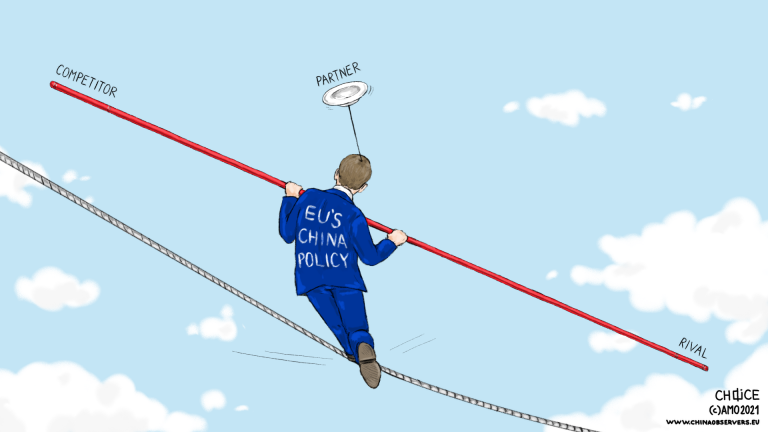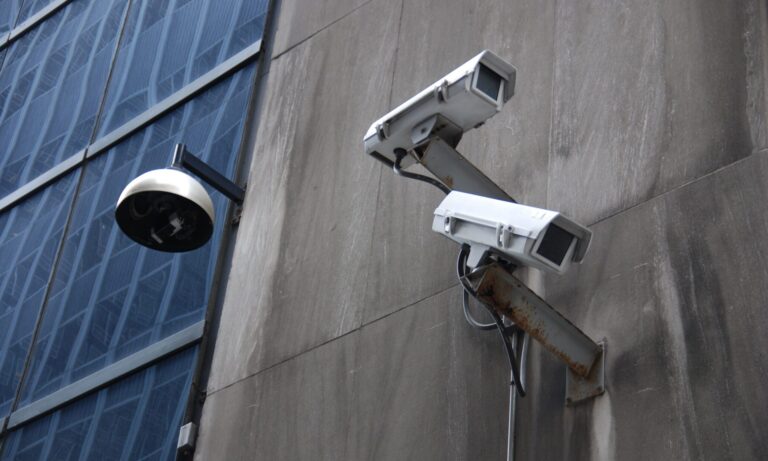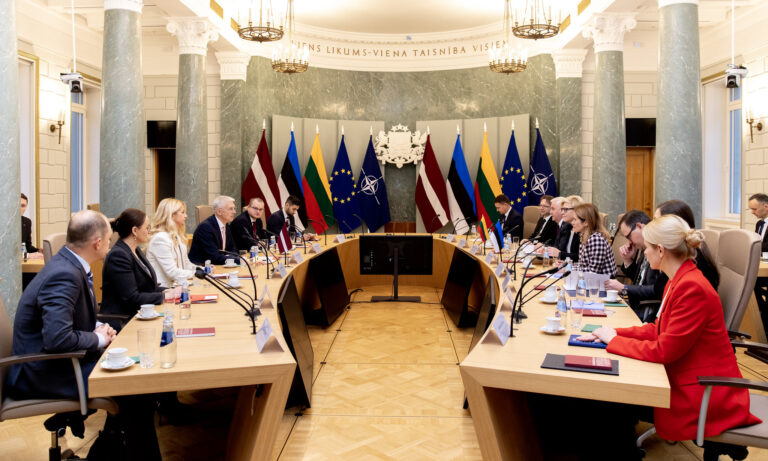
On August 23 Lithuania along with the other two Baltic states, Estonia and Latvia, commemorated the 30th anniversary of the Baltic Way, one of the world’s largest ever peaceful political demonstrations. In 1989 approximately two million people joined their hands to form a human chain spanning almost 700 km and connecting the three republican capitals to mark the 50th anniversary of the infamous Molotov–Ribbentrop Pact and protest their subsequent annexation by the Soviet Union.
The eventful day took a rather unexpected turn when several hundreds of Lithuanians that joined hands in solidarity with the protesters in Hong Kong were confronted by a small but vocal group of pro-Beijing counter-demonstrators in downtown Vilnius. At around the same time in Hong Kong, an estimated 210,000 people formed their own
‘Hong Kong Way’ spanning some 60 km as part of the ongoing Anti-Extradition Law protests in the city. The alleged author of the idea, an anonymous Tallinn-based Hong Kong startup entrepreneur, explicitly named the Baltic Way as an inspiration.
It needs to be noted that this was not the first time that the 1989 events in the Baltic republics were linked with China. Back in 2004, an approximately 2 million-strong and 500 km-long pro-independence 228 Hand-in-Hand rally in Taiwan was also inspired by the prior Baltics example.
Crossing the Line
Crucially, the incident in Vilnius proved to be a qualitatively novel development, as it marked the first time that pro-Beijing demonstrators expressed themselves openly in Lithuania. Around a dozen of them were shouting that Hong Kong is part of China forever and displayed the corresponding posters. The group’s apparent leader Wang Haonan, the alleged chairman of the Chinese Chamber of Commerce in Lithuania (curiously established on the same day of the actual incident), said that the local supporters of the Hong Kong protesters were misled by “fake news” and questioned whether any of them had indeed been to Hong Kong or China at all. On the other side of the divide, a member of the Lithuanian parliament Mantas Adomėnas indicated that he had witnessed none other but the Chinese ambassador Shen Zhifei “personally observing from the side-lines” and directing the counter-protesting group in Vilnius. As a result of the commotion, two Chinese citizens were briefly detained by Lithuanian police and fined 15 euros each for disturbing the public order during the event.
The Lithuanian Ministry of Foreign Affairs (MFA), that had a whole weekend to gather evidence and prepare a response, decided to summon the ambassador Shen on Monday, August 26. While commenting on the diplomatic note handed in protest to China, the Minister of Foreign Affairs Linas Linkevičius was rather straightforward: “Based on the information we have, the behavior of some diplomats crossed the line […]. We, therefore, expressed our regret and demanded that similar actions should not be repeated in the future.” The Chinese embassy predictably denied any involvement in a comment sent to one of Lithuania’s main news agencies. It stressed the spontaneous character of the counter-protest and expressed strong hopes that “such events tarnishing the Chinese government will not happen again in the future.”
Part of the Larger Context
Despite its novel character, it would be difficult to isolate the incident in Vilnius from other developments in the Sino-Lithuanian relationship this year. In February, Lithuania’s intelligence bodies for the first time identified Chinese espionage as a threat to the country’s national security adding it to the two usual suspects of Russia and Belarus. The Chinese embassy’s response was uncharacteristically harsh, and arguably counterproductive, underlining that “it is absurd and ridiculous for the Lithuanian intelligence and security services to rely on conjecture and imagination to make unfounded distortions.” The whole controversy was unfolding in the context of hot debates about Huawei in the region and the related news from neighboring Poland.
The Lithuanian MFA’s reaction to such a threat assessment was pointedly cautious with Linkevičius unwilling to “attach labels” on China. Indeed, before February, the bilateral relationship was on a positive direction. Only three months earlier the country’s outgoing president Dalia Grybauskaitė met Xi Jinping and launched the Trade and Investment Forum in Shanghai. One can only speculate about the connection between such an invitation and her earlier decision not to meet the visiting Dalai Lama in June 2018, especially considering that they had a ‘private’ meeting back in 2013.
The August incident in Vilnius was the first China-related challenge under Lithuania’s new president Gitanas Nausėda who assumed office only a month earlier. On the same day as the Baltic Way protests were organized in Vilnius, he remarked at a different event that “the welfare, peace and prosperity of Hong Kong’s people is a goal we all share.” Finally, the story coincided with the preparation for the 2019 Basketball World Cup hosted by China with the promising Lithuanian squad also competing. This essentially meant that the Asian giant had received perhaps the largest media coverage and day-to-day attention in the country since the 2008 Beijing Olympics.
Lithuania Challenging the Status Quo?
Less understood in Lithuania was the fact that China could also perceive the events leading up to the August incident as challenging the status quo by the Lithuanian side. The solidarity event was co-organized by Lithuania’s active and vocal Tibet support group, and there were as many Tibetan “snow lion” flags as the Hongkongese ones among the demonstrators in Vilnius.
Indeed, although the problem of Tibet has long ago become an uncomfortable but essentially habitual part of the bilateral agenda, recently we have seen Lithuania making statements on China’s other ‘core interests’. On July 8, Lithuania joined 21 other countries in a letter addressed to the president of the UN Human Rights Council and the UN High Commissioner for Human Rights calling on Beijing to respect human rights and fundamental freedoms in Xinjiang by refraining from the arbitrary detention and restrictions on freedom of movement of Uyghurs and other Muslim and minority communities there. Notably, the three signatory Baltic states were not joined by any other 17+1 country. While for Lithuania and Latvia it was a first move of the kind, Estonia’s ambassador in Beijing had already been among the 15 signatories of a similar letter back in November 2018.
In general, many Lithuanians were genuinely surprised by Hongkongese attention to their recent political history, ranging from Cantonese cover of the trilingual song that became the anthem of the Baltic Way to its actual reenaction on the streets of Hong Kong. Their quite natural sympathies were met with the Chinese party-state’s animosity towards the ‘color revolutions’ and, most probably, a view that it is none other but Lithuania that has been increasingly challenging the status quo in the bilateral relationship, thus preparing the necessary conditions for the August incident.
It is no wonder that China seems to have become particularly sensitive about its ‘core interests’, if one is to consider numerous related anniversaries this year, ranging from the establishment of the People’s Republic to the Tiananmen crisis and outbreaks of massive unrest in Tibet and Xinjiang. Lithuania’s recent foray into some of these issues thus caused unprecedented but largely predictable reaction.
At the same time, China’s statements and actions can hardly gain sympathy in a country where significant part of identity is built on the history of fight for independence from another communist superpower, the Soviet Union, and a struggle for democratic values, which China seems to be antithetical to. Therefore, whether Linkevičius’ hopes that the diplomatic incident in Vilnius would not negatively affect the pragmatically developing Sino-Lithuanian relations were realistic, remains to be seen.
Written by
Konstantinas Andrijauskas
Konstantinas is an Associate Professor of Asian Studies and International Politics at Vilnius University. Previously, he was a senior visiting scholar at China's Fudan and Zhejiang universities as well as Columbia University through the Fulbright Scholar Program. He has authored more than a dozen academic publications in several languages, including a Lithuanian-language monograph “The Clash between China, India and Russia in Eurasia’s Civilizational Spaces”.


